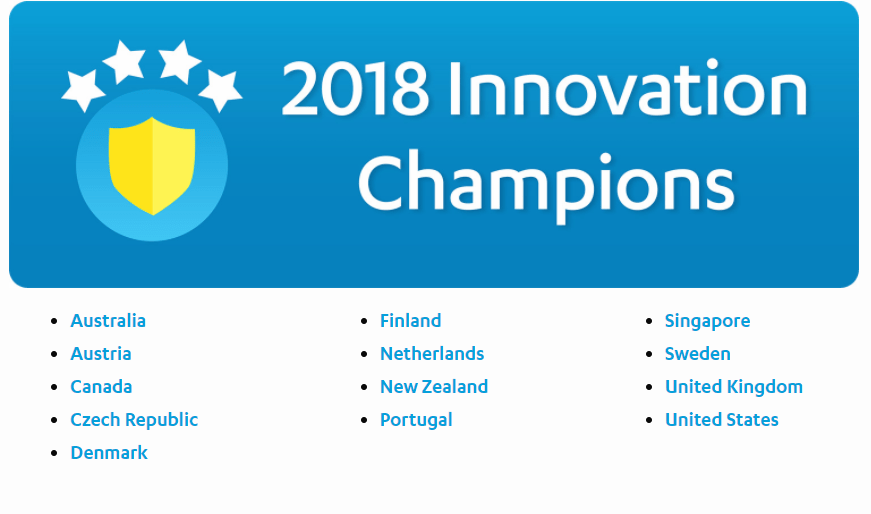The Consumer Technology Association (CTA) has named Denmark as one of its innovation champions as part of its inaugural 2018 International Innovation Scorecard Report.
The report aims to offer a more comprehensive tool to help evaluate a country’s standing in terms of passing innovation-friendly policy.
The report is based on findings from 38 counties and the EU on 25 indicators across 12 categories. Denmark was named an Innovation Champion, along with Australia, Austria, Canada, Czech Republic, Finland, the Netherlands, New Zealand, Portugal, Singapore, Sweden, the UK and the US.
“The Danes spend over 3 percent of their GDP on research and development, significantly more than most countries. They also put entrepreneurial talent to good use: an annual new business rate of 4.36 per 1,000 people and a startup sector that has produced two unicorns places the country ahead of the pack,” the CTA report (here in English) found.
READ MORE: Denmark leads the way in data innovation in the EU
High scores … mostly
The key findings showed Denmark as being among the best countries in terms of having the greatest individual and political freedom, the fastest and most affordable internet connections, the greatest research and development (R&D) spending as a percentage of GDP, the best federal frameworks for short-term home rentals, and having the cleanest water and air.
Moreover, on an A-F scale with A being the best, Denmark scored a B+ for diversity, an A+ for freedom, an A- for broadband, a B- for human capital, a B- for tax friendliness, an A- for R&D investment, a B+ for entrepreneurial activity, a B for drones, an A for short-term rentals and an A- for environment.
However, Denmark scored a C for self-driving vehicles and a dismal F for ridesharing – likely a consequence of the more stringent taxi legislation that sent the likes of US transportation service Uber packing last year.
“Denmark can ease restrictions on ridesharing platforms. The country currently has rules requiring special licenses for rideshare drivers, and capping the number of licenses local regulators can hand out,” the report found.













